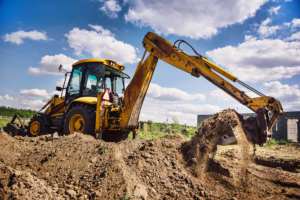Excavator Rentals in Redwood City, CA
The Best Digger Machines in Redwood City, CA
Embark on your construction and excavation projects with unwavering confidence, courtesy of A-1 Equipment Rental Center's top-tier excavator rental services in Redwood City, CA. Reserve your excavator now and unearth a realm of possibilities with A-1 Equipment Rental Center by your side.
What Is an Excavator?
An excavator is a heavy construction machine designed for digging and moving large amounts of earth, soil, or debris. It typically consists of a cab mounted on a rotating platform (known as the house), an arm, a boom, and a bucket. Excavators are commonly used in construction, demolition, mining, landscaping, and other industries to perform tasks such as digging trenches, foundations, and holes and lifting and placing heavy objects. The versatility and power of excavators make them indispensable tools in various earthmoving and construction projects.
Types of Excavators
We have several types of excavators at A-1 Equipment Rental Center designed to cater to different construction and earthmoving needs. Each type of excavator has its own strengths and applications, catering to specific project requirements and site conditions. Some common types include:
- Crawler Excavator - Equipped with tracks for stability and mobility on uneven terrain, crawler excavators are versatile and powerful machines used for a wide range of digging and lifting tasks.
- Wheeled Excavator - Featuring wheels instead of tracks, wheeled excavators are more maneuverable and well-suited for tasks on surfaces that don't require as much traction.
- Mini Excavator - Smaller in size, mini excavators are perfect for tight spaces and lighter tasks like landscaping and utility work.
- Long Reach Excavator - This type has an extended arm and boom, enabling it to reach greater depths and heights, often used for dredging or deep digging.
- Dragline Excavator - Primarily used in mining, dragline excavators have a large bucket suspended from a boom and cable system, making them ideal for removing overburden in surface mining operations.
- Amphibious Excavator - Designed to work in marshy or waterlogged areas, amphibious excavators have pontoons or floats for stability in aquatic environments.
- Backhoe Loader - Combining a backhoe (digging bucket) with a front loader, backhoe loaders are versatile machines used for digging, trenching, and loading tasks.
- Suction Excavator - Also known as vacuum excavators, these machines use powerful suction to remove soil and debris, making them ideal for sensitive areas where traditional digging may cause damage.
- Hydraulic Shovel - Larger and more powerful than standard excavators, hydraulic shovels are commonly used in mining and large-scale excavation projects.
How to Choose the Right Excavators
Choosing the right excavator involves considering various factors. Begin by assessing the scale and nature of the project, such as digging depth and required reach. Evaluate the working environment, including terrain and space constraints. Factor in the excavator's power, bucket capacity, and attachments like hydraulic hammers or grapples. Fuel efficiency, maintenance requirements, and operator comfort should also be weighed. Matching these criteria with the appropriate excavator type—whether crawler, wheeled, mini, or specialized—ensures optimal performance and cost-effectiveness for your specific construction or earthmoving needs.
FAQs About Excavators
What is an excavator used for?
An excavator is a heavy construction machine used for digging, lifting, and moving earth, soil, debris, and heavy objects. It finds applications in construction, mining, demolition, landscaping, and other industries.
How do I operate an excavator?
Operating an excavator requires training and skill. Typically, you control the machine's movements using joysticks in the cab. The left joystick controls the boom and bucket, while the right joystick manages the tracks or wheels. Proper training and certification are essential for safe and efficient operation.
What factors affect the choice of an excavator type?
Key considerations include project scale, site conditions, required digging depth, and space constraints. Additionally, consider attachments needed (like buckets, breakers, or grapples), fuel efficiency, maintenance requirements, and operator comfort.
How is an excavator's size determined?
Excavators are categorized by their operating weight. Mini excavators typically weigh up to 8 tons, while larger models can range from 8 to over 100 tons.
Choose A-1 Equipment Rental Center
Unleash the potential of your projects with A-1 Equipment Rental Center's excavator rental services. Whether you're digging, lifting, or maneuvering heavy loads, our advanced excavators deliver unmatched performance. And that's just the beginning – our comprehensive lineup includes dolly rentals, flooring equipment, and more. Elevate your work and maximize efficiency with A-1 Equipment Rental Center. Discover our full range of services now and how.









